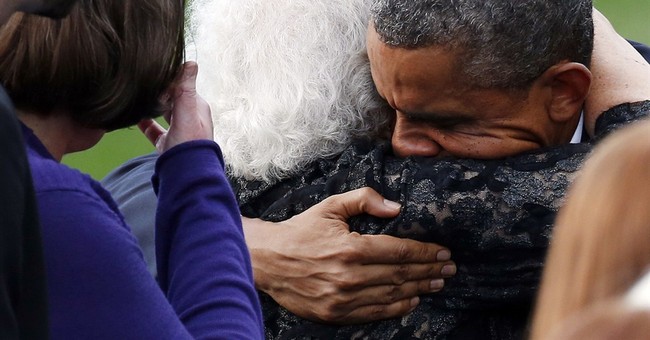Honesty and Trust Walter E. Williams | Sep 25, 2013
Honesty and TrustWalter E. Williams | Sep 25, 2013 Dishonesty, lying and cheating are not treated with the right amount of opprobrium in today's society. To gain an appreciation for the significance of honesty and trust, consider what our day-to-day lives would be like if we couldn't trust anyone. When we purchase a bottle of 100 pills from our pharmacist, how many of us bother to count the pills? We pull in to a gasoline station and pay $35 for 10 gallons of gasoline. How do we know for sure whether we in fact received 10 gallons instead of 9 3/4? You pay $7 for a 1-pound package of filet mignon. Do you ever independently verify that you in fact received 1 pound? In each of those cases, and thousands more, we simply trust the seller. There are thousands of cases in which the seller trusts the buyer. Having worked 40 hours, I trust that George Mason University, my employer, will pay me. People place an order with their stockbroker to purchase 100 shares of AT&T stock, and the stockbroker trusts that he'll be paid. Companies purchase 5 tons of aluminum with payment due 30 days later. Examples of honesty and trust abound, but imagine the cost and inconvenience if we couldn't trust anyone. We would have to lug around measuring instruments to make sure that it was in fact 10 gallons of gas and 1 pound of steak that we purchased. Imagine the hassle of having to count out the number of pills in a bottle. If we couldn't trust, we'd have to bear the costly burden of writing contracts instead of relying on a buyer's or a seller's word. We'd have to bear the monitoring costs to ensure compliance in the simplest of transactions. It's safe to say that whatever undermines honesty and trust raises the costs of transactions, reduces the value of exchange and makes us poorer. Honesty and trust come into play in ways that few of us even contemplate. In my neighborhood, workers for FedEx, UPS and other delivery companies routinely leave packages that contain valuable merchandise on the doorstep if no one answers the door. The local supermarket leaves plants, fertilizer and other home and garden items outdoors overnight unattended. What's more, the supermarket displays loads of merchandise at entryways and exits. In neighborhoods where there's less honesty, deliverymen's leaving merchandise on doorsteps and stores leaving merchandise outdoors unattended or at entryways and exits would be equivalent to economic suicide. Dishonesty is costly. Delivery companies cannot leave packages when the customer is not home. The company must bear the costs of making return trips, or the customer has to bear the costs of going to pick up the package. If a supermarket places merchandise outside, it must bear the costs of hiring an attendant -- plus retrieve the merchandise at the close of business; that's if it can risk having merchandise outdoors in the first place. Honesty affects stores such as supermarkets in another way. A supermarket manager's goal is to maximize the rate of merchandise turnover per square foot of leased space. When theft is relatively low, the manager can use all of the space he leases, including outdoor and entryway space, thereby raising his profit potential. That opportunity is denied to supermarkets in localities where there's less honesty. That in turn means a higher cost of doing business, which translates into higher prices, less profit and fewer customer amenities. Crime, distrust and dishonesty impose huge losses that go beyond those suffered directly. Much of the cost of crime and dishonesty is borne by people who can least afford it -- poor people. It's poor people who have fewer choices and pay higher prices or must bear the transportation costs of going to suburban malls to shop. It's poor people in high-crime neighborhoods who are refused pizza delivery and taxi pickups. The fact that honesty and trust are so vital should make us rethink just how much tolerance we should have for criminals and dishonest people. Walter E. Williams Dr. Williams serves on the faculty of George Mason University as John M. Olin Distinguished Professor of Economics and is the author of 'Race and Economics: How Much Can Be Blamed on Discrimination?' and 'Up from the Projects: An Autobiography.' Carl Ray Louk Not racist, not violent, just not silent anymore Fighting for lower taxes, less government, and more freedom. I am Carl Ray Louk and unlike the President of the United States of America, Barack Hussein Obama, I stand with Israel FreedomWorks We are a community of over 2 million grassroots activists We recruit, educate & mobilize across the country Fighting for lower taxes, less government, and more freedom. http://www.freedomworks.org/ "Friendship Never Ends" SG-1996 "Let Love Lead The Way" SG-2000 "The Phoenix Shall Rise" Count Carl Ray Louk 2003 "Even A Man Who Is Pure In Heart And Says His Prayer By Nigh, May Become A Wolf When the Wolf bane Blooms And The Autumn Moon Is Bright." LT-1941 "Flesh of my flesh; blood of my blood; kin of my kin when I say come to you, you shall cross land or sea to do my bidding!" CVTD-1895 "From Hell's Heart I stab at thee, for hate sake I spit my last breath at thee" CA-1895 "I have been, and always shall be your friend" Spock "Trick or Treat, Trick or Treat candy is dandy but murder, oh murder, is so sweet" Count Carl Ray Louk-2003 "Eye of newt, and toe of frog, wool of bat, and tongue of dog adder's fork, blind worm's sting, lizard's leg, and owlet's wing. For a charm of powerful trouble, like Hell broth boils and babble. Double, double, toil and trouble, fire burn, and caldron bubble" WS Facebook: www.facebook.com/CarlRayLouk Twitter: www.twitter.com/CarlRayLouk MySpace: www.myspace.com/carlraylouk Yahoo Group: Yahoo! Groups : LouksHauntedGraveyardhttp://groups.yahoo.com/group/LouksHauntedGraveyard/ Yahoo Group: Yahoo! Groups : TheWorldAccordingtoCarlRayLouk http://groups.yahoo.com/group/TheWorldAccordingtoCarlRayLouk/ |



0 Comments:
Post a Comment
<< Home